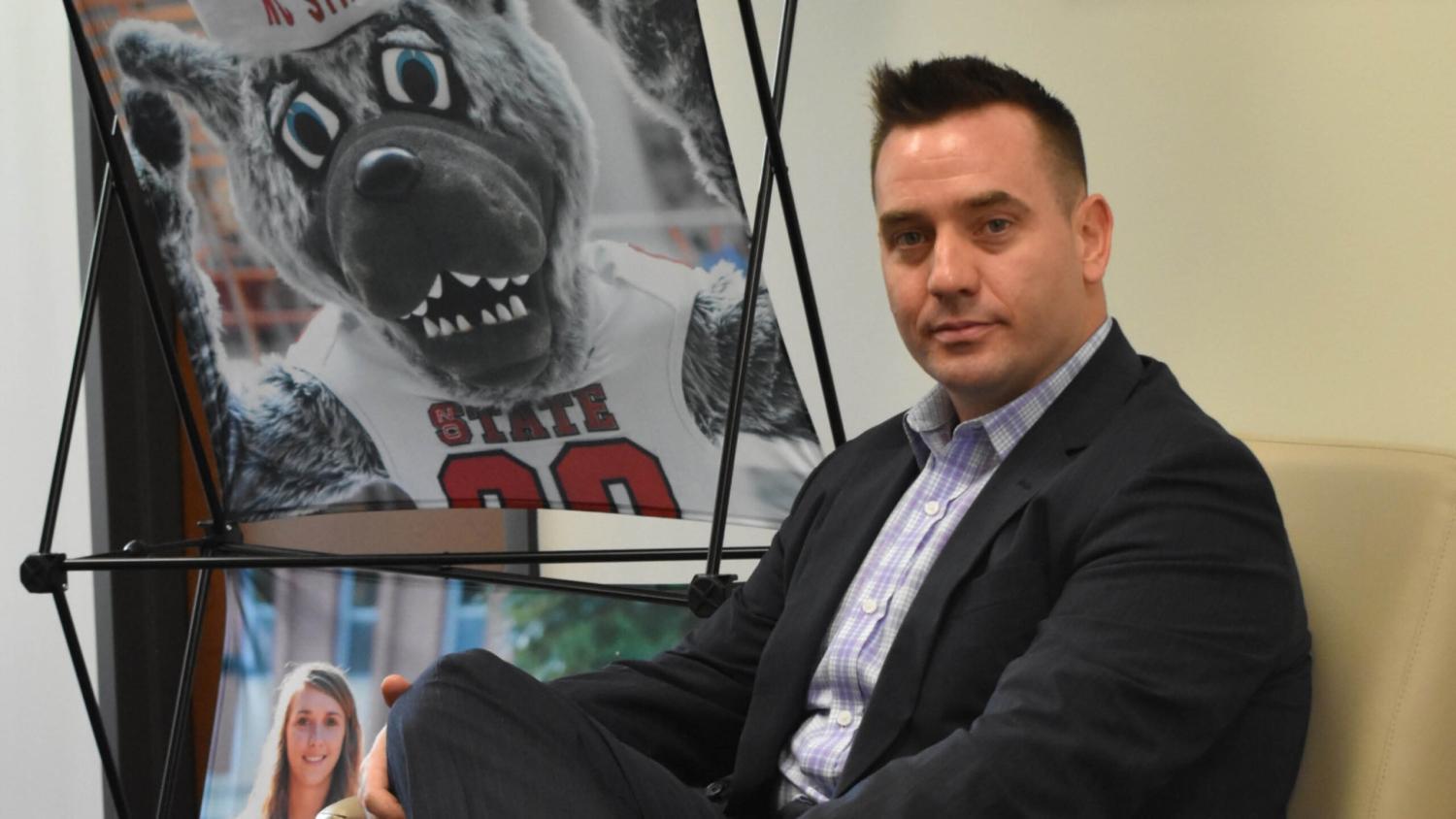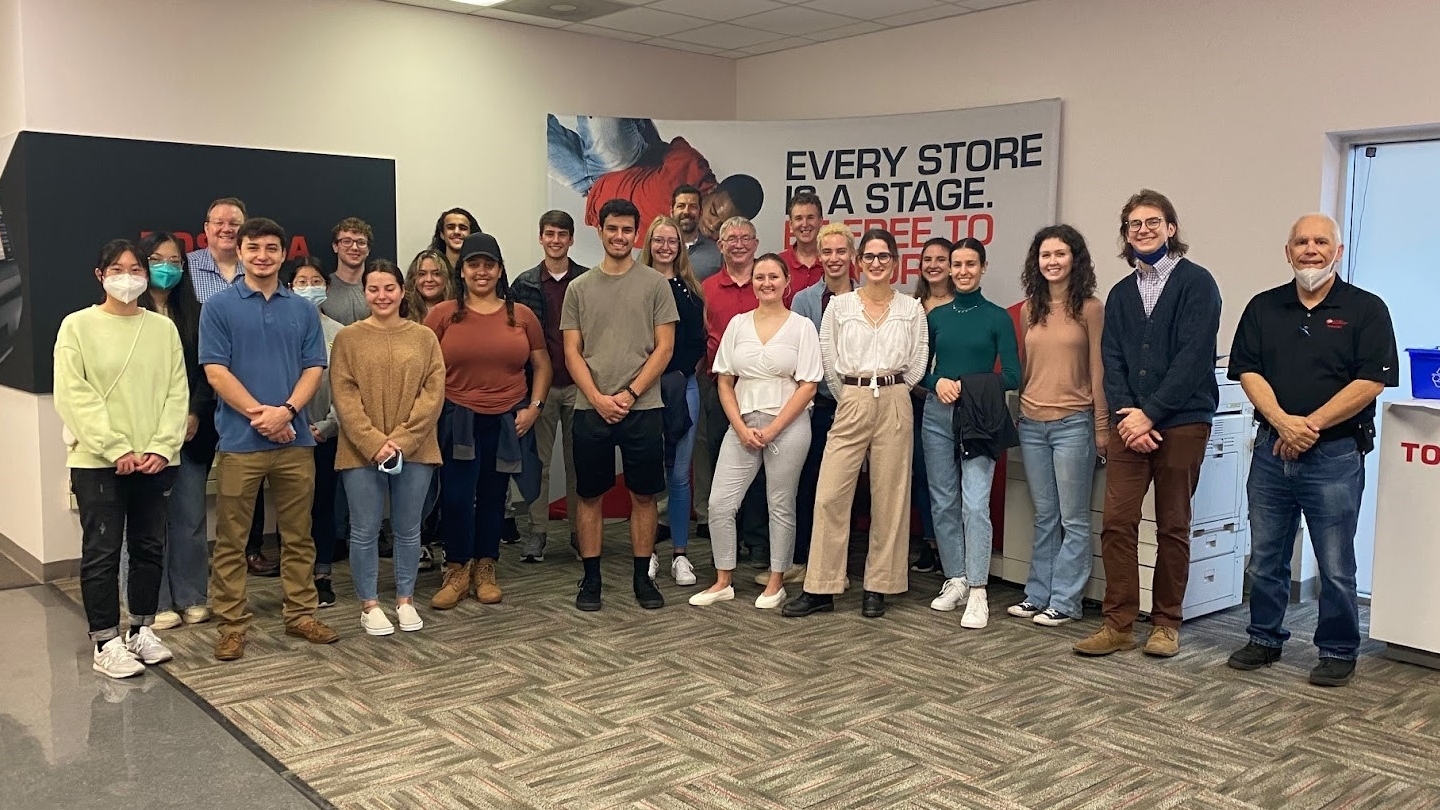Naval Officer Brings Jenkins MBA experience To White House Task Force For COVID-19 Response

“I never thought that I would be called upon to work on national strategy at this level.”
Growing up on U.S. Air Force bases, William Morrison (MBA’19) dreamed of following in his mother’s footsteps. When an Air Force recruiter failed to show up for two consecutive meetings, he agreed to meet with a Navy recruiter at the same office. Two years later, he found himself aboard USS Shiloh, a guided missile cruiser off the coast of Japan, as a member of the Navy Supply Corps. The rest, as they say, is history.
Fast forward fourteen years to when Morrison was fresh out of NC State Jenkins MBA program and serving as an operations officer for Naval Sea Systems Command. It was the height of the pandemic, and the White House Task Force for COVID-19 Response was searching for experienced supply chain management professionals to coordinate the complex effort to invest federal dollars in domestic efforts to produce personal protective equipment (PPE).
From June to November 2020, Lieutenant Commander Morrison worked alongside an elite team of high-ranking military leaders and political appointees out of the Federal Emergency Management Agency (FEMA) and Health and Human Services (HHS) offices. “Having this level of exposure to policymaker so early in my career was really unexpected,” Morrison reflects.
As COVID-19 cases skyrocketed, funds from CARES Act and Defense Production Act were fueling the efforts of domestic manufacturers to expand production of N95 masks, nitrile gloves, surgical gowns, and other life-saving PPE. “The problem was that we were seeing wild variations in demand for PPE from one day to the next, depending on infection and hospitalization rates,” says Morrison. Using far less data available than they would have preferred, he and his colleagues on the Supply Chain Task Force tracked federal investments in PPE production and created a data-driven strategy to determine how much capacity these investments should produce and where production should increase to account for regional surges in demand.
“There wasn’t a single thing that I studied in the Supply Chain Management program at Poole College’s Jenkins MBA that I didn’t use on the task force.”
While his MBA experience has certainly paid off, it wasn’t always a smooth ride, he acknowledges. Entering the full-time MBA program at 37, he feared he wouldn’t be as “cognitively pliable” as younger learners, so he had to compensate by working tirelessly and taking advantage of the instructor access that smaller class sizes afforded.
Fortunately, Morrison persevered and graduated with a new mantra: “Don’t let great be the enemy of the good.” As a former accountant, he was trained to believe that precision is critical to success in every circumstance. His supply chain management classes challenged him to solve problems through a different lens. “I learned to match goals to resources in a way that maximized results and profits over precision,” he explains.
“I’m grateful for the ways my time at Poole’s Jenkins MBA prepared me for highly meaningful work.”
This post was originally published in Jenkins MBA News.
- Categories:


